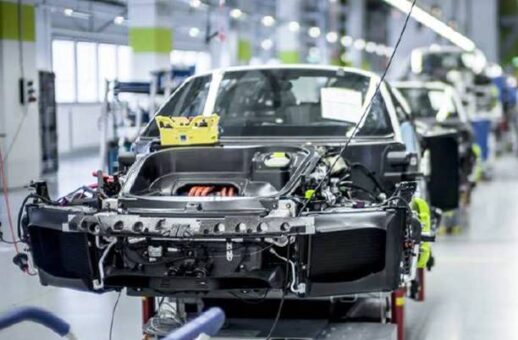The Federal Board of Revenue (FBR) has announced a reduction in customs duty to 15% for components used in the assembly or manufacture of cars in any kit form.
The decision, outlined in the recently issued SRO 2069 (I)/2022 dated December 1, 2022, and an amendment to SRO 656(I)/2006 dated June 22, 2006, is expected to positively impact the automotive sector.
According to the new SRO, specific conditions and rates have been established for different categories of cars under PCT heading 87.03. For cars up to 1000CC (excluding specially designed twin cabin type taxi PCT heading 8703.3227 and 4-stroke auto-rickshaw of PCT heading 8703.2115, mini-vans, and 4X4 vehicles), the customs duty on imported components for assembly or manufacture in any kit form has been reduced to 15%.
The reduced rate of duty will apply for new makes or models, as certified by the Engineering Development Board (EDB), for three years from the date of issuance of the manufacturing certificate or up to June 30, 2026, whichever comes earlier. This provision is designed to encourage the importation and use of components for the assembly or manufacturing of cars up to 1000CC, supporting the local automotive industry.
However, for cars exceeding 1000CC under PCT heading 87.03 (excluding specially designed twin cabin type taxi PCT heading 8703.3227 and 4-stroke rickshaw of PCT heading 8703.2115, mini-vans, and 4X4 vehicles), the customs duty on imported components for assembly or manufacture in any kit form will remain at 30%. The distinction in duty rates based on engine capacity aims to balance the support for smaller vehicles while maintaining the existing duty structure for larger and more powerful cars.
This reduction in customs duty aligns with the government’s efforts to incentivize local production, attract investment in the automotive sector, and promote the development of the domestic automobile industry. By encouraging the assembly or manufacturing of cars locally, the government aims to create job opportunities, boost economic growth, and reduce reliance on fully assembled imported vehicles.
The decision by the FBR reflects a strategic approach to fostering the growth of the automotive sector in Pakistan. The reduced customs duty is expected to encourage businesses and investors to explore opportunities in local assembly or manufacturing, contributing to the overall development and competitiveness of the country’s automotive industry. As the automotive landscape evolves, these policy measures are crucial for positioning Pakistan as a hub for sustainable and cost-effective vehicle production.
